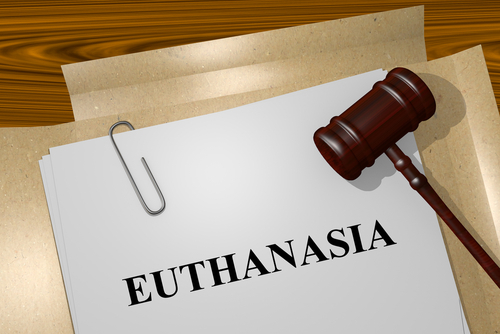SC reserves verdict on passive euthanasia
IANS Oct 12, 2017
The Supreme Court on Wednesday reserved its verdict on a plea to allow "living will" that would authorise the withdrawal of all life support systems to a patient if in the opinion of the doctors, the person has reached an irreversible stage of terminal illness amidst indications that top court may allow it with strict safeguards.

Indicating that a living will (passive euthanasia) can come into operation only after medical board certifies that a person is in an irreversible state of terminal illness, the Constitution Bench of Chief Justice Dipak Misra, Justice A.K. Sikri, Justice A.M. Khanwilkar, Justice D.Y. Chandrachud and Justice Ashok Bhushan felt that the right to die in peace could not be separated from right to life under Article 21.The court reserved its order on a public interest plea by the NGO Common Cause that was filed in 2005 seeking right to make a living will authorising the withdrawal of life support system in the event of will makers reaching an irreversible vegetative state. The Central government has told the top court that passive euthanasia was the law of the land with safeguards by virtue of an earlier judgment of the top court 2014 in Aruna Shanbaug case.
The top court by its order on March 7, 2014, in Aruna Shanbaug case, had permitted passive euthanasia under certain circumstances provided it was backed by the permission of the high court concerned.The Centre had also told the constitution bench that a draft bill permitting passive euthanasia with necessary safeguards was already before it for consideration.However, it has opposed permitting a living will both on the grounds of "principle and practicality" as it expressed apprehension of its possible misuse.Besidesa, Common Cause, the constitution bench was addressed by a number of interveners who had supported permitting the living will.A living will is made by a person in his normal state of mind that is to be executed if in the event of terminal illness he reached an irreversible vegetative state.However, it was emphasised that the living will only be executed after the opinion of the medical board certifying the condition of the patient.
-
Exclusive Write-ups & Webinars by KOLs
-
Daily Quiz by specialty
-
Paid Market Research Surveys
-
Case discussions, News & Journals' summaries